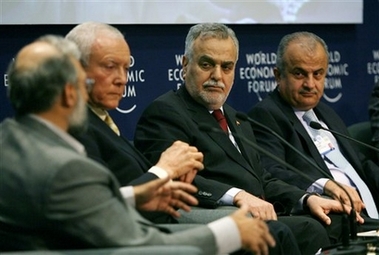Iran: Arabs should back nuclear program
(AP)Updated: 2007-05-21 10:25
SOUTHERN SHUNEH, Jordan - Iran urged Arab countries on Sunday to support its nuclear program but received a cool reception at the World Economic Forum, particularly from US allies worried about Iran's growing regional influence.
Arab countries should value Iran's nuclear development because it could help them address their own energy needs, said Mohammed J.A. Larijani, a former deputy foreign minister and brother of Iran's chief nuclear negotiator.
"Iran will be a partner, a brotherly partner, and will share its capabilities with the people of the region," Larijani told AP Television News at the end of the three-day World Economic Forum in this dead sea resort town.
In contrast, he argued the West would turn a blind eye if Arab countries came looking for nuclear assistance.
Arab diplomats gave Larijani and other Iranian delegates a cold shoulder during the forum, however.
"There are serious flaws in the regional order and some countries are interfering in the affairs of Arab countries," Jordanian Foreign Minister Abdul-Ilah al-Khatib said, referring to Iran's growing influence in Iraq.
Addressing Larijani at a panel session on Iraq's future, al-Khatib said: "We need to see deeds on the ground and respect for Iraq's territorial integrity."
Suspicion of Iran was clear at the conference. Iranian delegates stood by themselves during coffee breaks at the gathering of some 1,000 politicians and businessmen from Arab and Western nations, including the United States.
Iranian Foreign Minister Manouchehr Mottaki often found himself defending Iran's policies, especially in Iraq, where Sunni Arabs worry Shiite Iran is aiding the flow of arms and fighters into the majority Shiite country.
Iraqi Vice President Tariq al-Hashemi, a Sunni Arab, lashed out at Iran at the conference.
"We say stop your interference in our internal affairs,
stop settling scores on our soil, stop being part of covert plans to destabilize
Iraq, and sit down with us to settle our differences, resolve outstanding issues
and talk about economic cooperation," he said.
| 1 | 2 |  |
|
||
|
||
|
|

